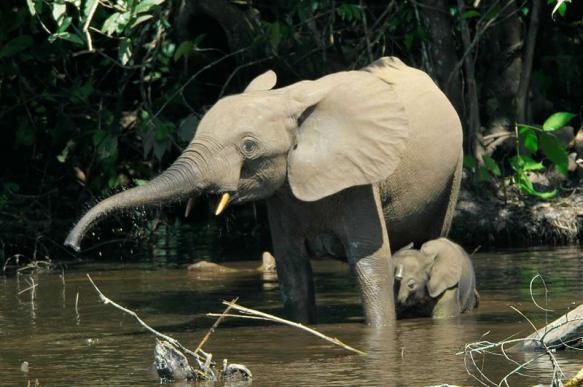Japan: Ban ivory trade or we boycott Olympics
It is 2019, and time the people of the world united on ethics and global common values. Protecting our environment and what lives in it must be a red line.

Japan's cynical manipulations over whaling, inventing excuses to slaughter these wonderful animals in the name of science, while whale meat piles up in Japanese supermarkets, are well known. What is less known is the Japanese dolphin drive hunt in Taiji. Boats line up at sea, driving the dolphins into the cove, where they are hacked to death by machete-wielding savages, grinning all over their faces as the sea becomes a bloodbath, the terrified animals gasping for air through the hole caused by chopping off their beaks.
Twenty-two thousand dolphins murdered every year
Every year around twenty-two thousand dolphins are slaughted by the Japanese. While the rest of the world treats dolphins with love and respect, the Japanese hack their beaks off and leave them floundering in the sea, before they are hacked to pieces and sold as meat.
Japan, the leader in the world ivory trade
So it comes as no surprise to find out that Japan is the world's leader in the ivory trade. Tens of thousands of elephants are literally hacked to death every year in Africa, for the tusks to be sawn out of the still living body, the living carcass left to die slowly, be eaten by hyenas and left to rot. Often the matriarch is killed, leaving the baby elephants to fend for themselves, surrounded by predators, terrified and defenceless before they suffer a horrific death.
All to satisfy the human filth in Japan, the world's leading ivory trader. Over the years, around two hundred and fifty thousand, a quarter of a million, elephants have been murdered to fuel Japan's ivory trade. As usual, Japan's answer is to produce cynical arguments that the only ivory for sale in Japanese ivory markets is legal ivory (harvested before 1990, when the international trade of ivory was banned) and a claim that a new law demanding that all tusks be subjected to carbon dating means that it will not be possible to sell illegal ivory. But this law, which came into force on July 1st 2017, does not cater for the 170 tons of elephant tusks present in Japan before 2017. Furthermore it only applies to whole, uncut tusks, not carved tusks which have already been worked before coming into Japan.
Japanese environmental activists, and there are many, have been the first to speak out against these cynical measures and claim that they will not halt or dent Japan's ivory trade. This is backed up by the fact that there have never been more pieces of carved ivory in Japan than there are today.
The only way forward is for Japan to man up, get real and ban its domestic ivory trade, stop murdering whales and cease its barbaric annual slaughter of dolphins, then perhaps the rest of humankind might regard the Japanese as human beings. Although most Japanese do not engage in these activities, those that do, get the country tarred with the same brush: how can a democratically elected government stand back and do nothing about these barbaric practices unless the public at large does not care? What is the position of the Japanese royal family?
People in 2019 no longer stand back and shrug, they no longer passively consider the authorities as having the right to do whatever they want. Today, people get involved, they take an interest and they can network. So today the people have the power to implement global collective ethical values. In Japan's case we can start by boycotting all Japanese goods and by holding to account those who buy them, not through illegal means but by informing them that by buying Japanese goods they are colluding with a country that shows a total disregard for the environment and which is directly responsible for the eventual extinction of the elephants.
We can follow this up with the Olympics and the Olympic participants, for the 2020 Games will be held in Japan. The five rings of the Olympic Games banner represent the five continents and the Olympic Charter speaks about ethics and setting examples. Slaughtering whales based upon barefaced lies, hacking dolphins to death and being responsible for the endangered status of elephants is surely not what the Olympic Movement is about and how dare Japan hoist that flag when it carries out these outdated acts of cruelty?
Therefore suppose we all hold our National Olympic Committees to account, forcing them to make statements on the ethical questions involved in Japan's behavior and take a firm stand, refusing to participate in the Japan Olympics unless Japan bans the domestic ivory trade? Supposing our athletes took a stand and spoke out against these outrages? Or does nobody care?
Photo 1: By Thomas Breuer - In the Shadows of the Congo Basin Forest, Elephants Fall to the Illegal Ivory Trade Gross L PLoS Biology Vol. 5, No. 4, e115 doi:10.1371/journal.pbio.0050115Available online here and here, CC BY 2.5, https://commons.wikimedia.org/w/index.php?curid=2507332
Photo 2: The author in 2018
Timothy Bancroft-Hinchey
Subscribe to Pravda.Ru Telegram channel, Facebook, RSS!


